Detroit to rebound 'stronger' after bankruptcy filing
- Published
Governor Snyder: "This has been a long period of decline. It's time to do something about it."
Michigan Governor Rick Snyder has said Detroit may have hit rock bottom with its bankruptcy filing, but the move will reverse decades of decay.
The Republican said the city - the birthplace of the US car industry, now groaning under $18bn (£12bn) of debt - deserves a fresh start.
Detroit has faced decades of problems linked to industrial decline.
Public services are nearing collapse and about 70,000 properties lie abandoned.
Gov Snyder said the city had filed for bankruptcy on Thursday because it was "basically broke".
"We're the comeback state in Michigan, but to be a great state we need Detroit on the path to being a great city again," he told Friday's news conference.
"Now is the opportunity to stop 60 years of decline," he added.
"We will come out with a stronger, better Detroit and a format to grow this city. The citizens of not just this city but the state deserve it."
Gov Snyder was flanked by state-appointed emergency manager Kevyn Orr, who suggested last month that the city's long-term debt could be as high as $20bn.
Mr Orr addressed concerns that art works at the Detroit Art Institute or other assets would be auctioned to pay creditors.
"Right now there's nothing for sale," he said.
Mr Orr will be allowed to liquidate city assets to satisfy creditors and pensions, if the federal court bankruptcy filing is approved.
Detroit - known as Motor City for its once-thriving automobile industry - stopped unsecured-debt payments last month to keep the city running.
Mr Orr proposed a deal in June in which creditors would accept 10 cents for every dollar they were owed. The city is currently paying 38 cents on the dollar.
But two pension funds representing retired city workers resisted the plan.
About $9bn of Detroit's debt is owed to the pension funds and retiree healthcare benefits of the city's 10,000 workers and 20,000 retirees.
Ed McNeil, the lead negotiator for a coalition of 33 unions, told Reuters news agency the bankruptcy move was about "busting the unions".
With tens of thousands of creditors, Detroit already faced a number of lawsuits even before it filed for bankruptcy.
Michelle Fleury visited the abandoned Packard manufacturing plant, once producing luxury cars at the heart of Detroit's motor car industry
Experts predict the legal battle over its debts could drag on for years and cost tens of millions of dollars.
US car company General Motors said on Thursday it did not expect any impact on its operations.
The White House said it was closely monitoring developments in the Michigan city.
The city has struggled with its finances for some time, driven by a number of factors, including a steep population loss.
Just between 2000-10, the number of residents declined by 250,000 as people moved away.
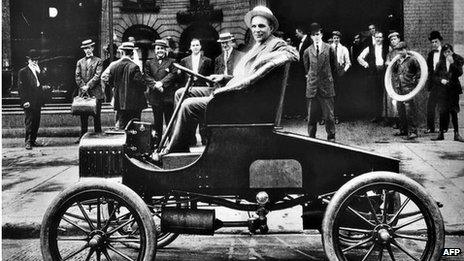
Detroit was once a hub of commerce. US car manufacturer Henry Ford, pictured here in his new Ford Model T, founded Ford Motor Company there.
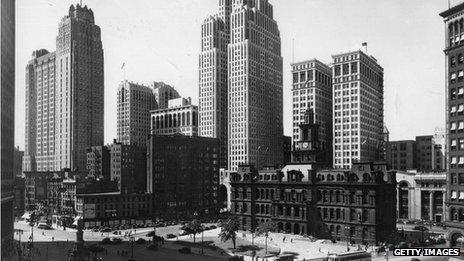
By the 1930s, the skyline included the 47-storey Penobscot Building, centre, and the City Hall, seen with the clock tower in the foreground.
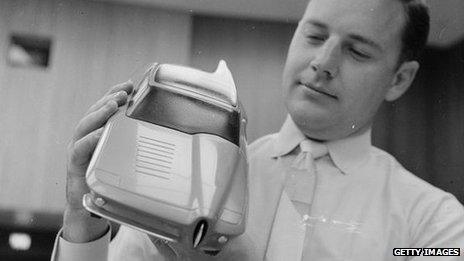
In the 1950s four out of every five cars in the world were made in the US, half by General Motors. Detroit had the highest median income, and highest rate of home ownership, of any major US city.
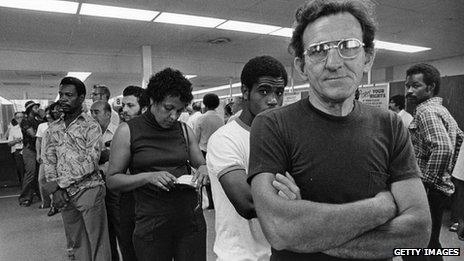
But the decline of the US car industry in the 1970s and 1980s left many people out of work.
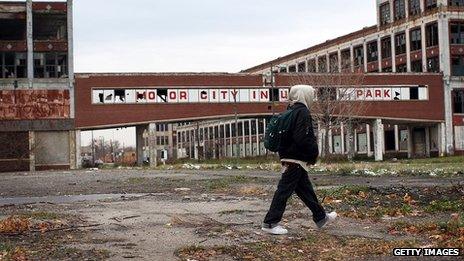
Unemployment in Detroit now sits at 18.2% and more than a third of the city's residents are now classified as living in poverty.
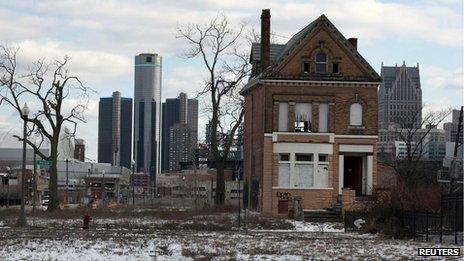
As well as the decline of industry, Detroit's finances have deteriorated due to mismanagement and corruption scandals.
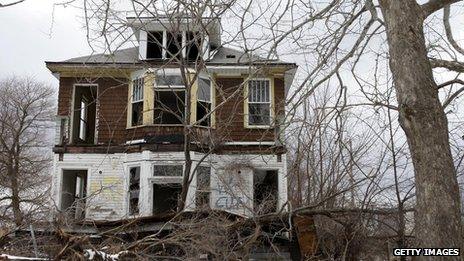
People have increasingly moved away, and the city's population has shrunk from two million at its peak in the 1950s to 713,000 today.
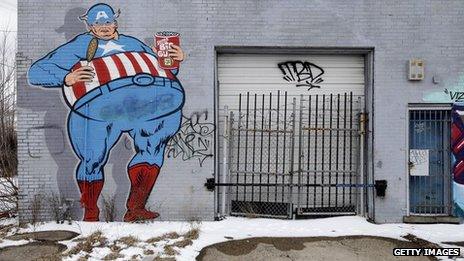
Declining investment in street lights and emergency services has made it difficult to police the city. The murder rate is at a 40-year high.
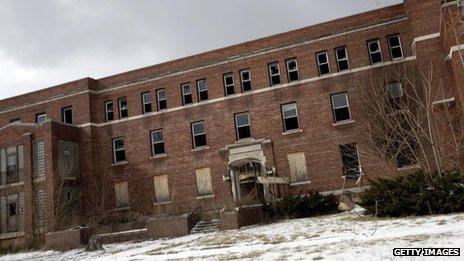
Public services are in a state of near-collapse. About 70,000 properties - including hospitals and fire stations - lie abandoned.
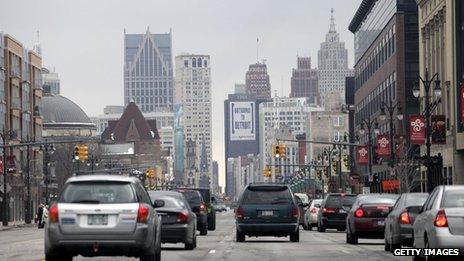
The city's emergency manager, Kevyn Orr, says filing for bankruptcy is the "first step toward restoring the city". Unions have criticised the move as a power grab.
The murder rate is at a 40-year high and only one third of its ambulances were in service in early 2013.
Police response times to 911 calls average 58 minutes, compared with 11 minutes nationally.
And Detroit's government has been hit by a string of corruption scandals over the years.
Detroit is only the latest US city to file for bankruptcy in recent years.
In 2012, three smaller California cities - Stockton, Mammoth Lakes and San Bernardino - took the step.
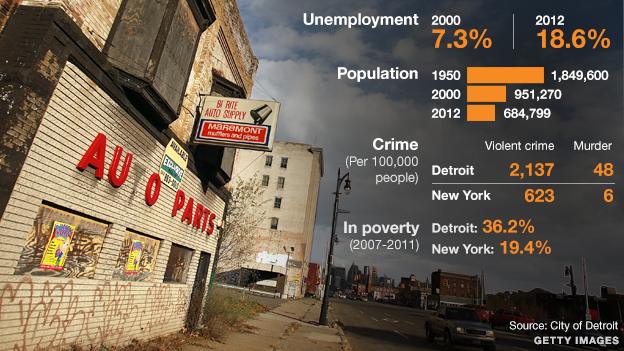
- Published19 July 2013
- Published19 July 2013
- Published19 July 2013
- Published19 July 2013
- Published14 June 2013
- Published13 May 2013